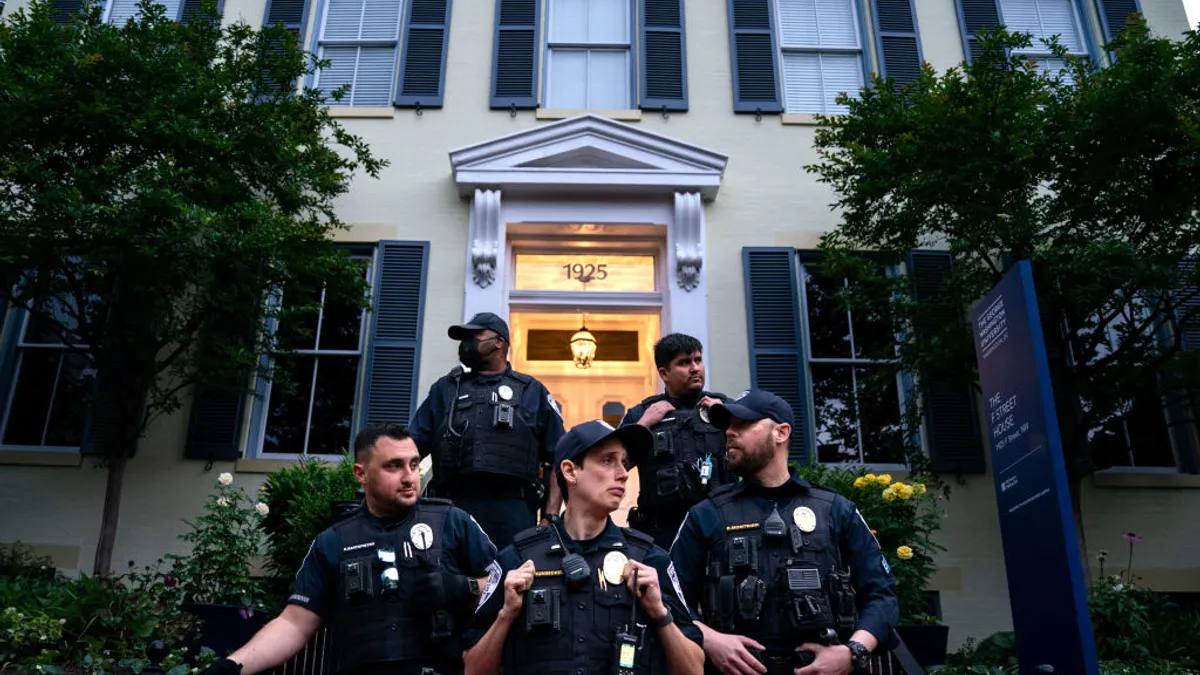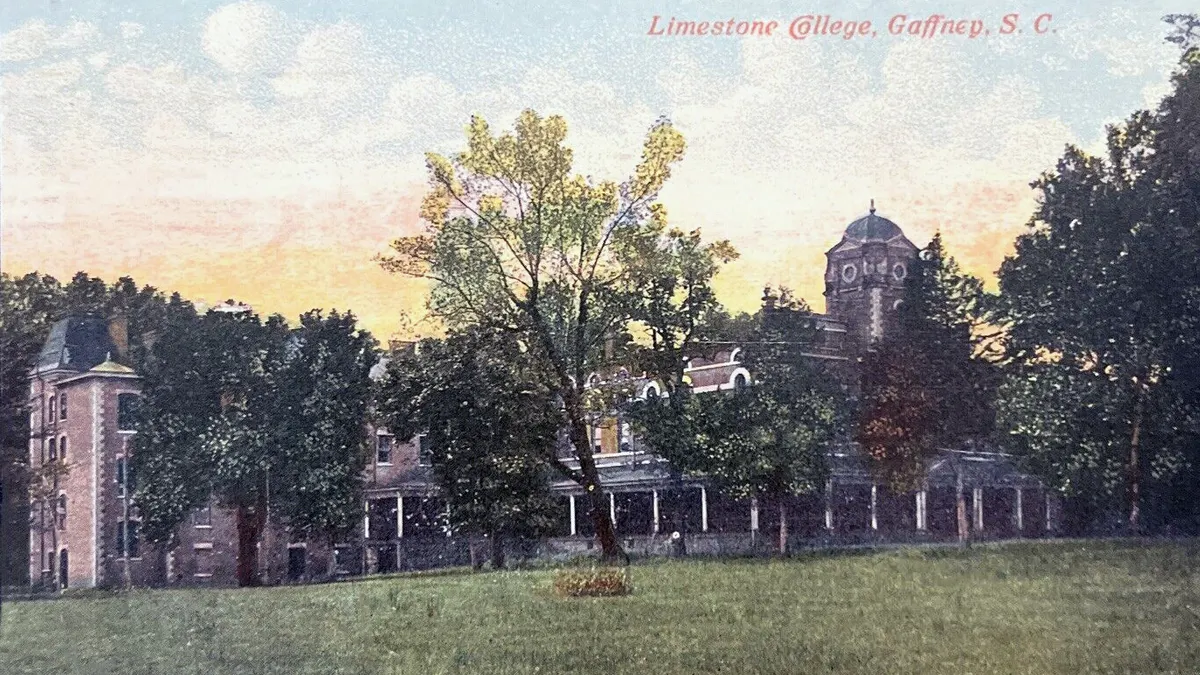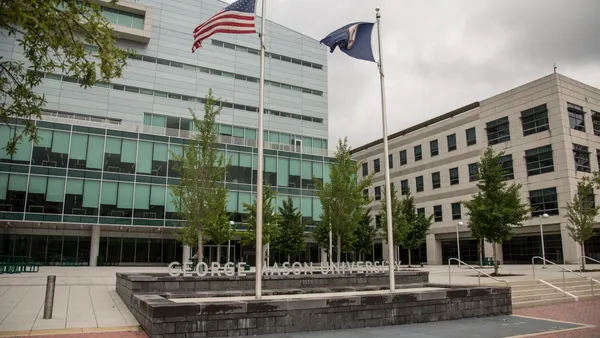Dive Brief:
- George Washington University's chief of police, James Tate, has resigned amid allegations that his department mismanaged a new program arming its police officers.
- The Washington, D.C., university announced Tate's departure Tuesday. It comes a week after the university's student newspaper, The GW Hatchet, reported that the university had placed Tate on leave and launched a third-party investigation into the gun program's purported safety and training shortfalls.
- GWU did not to address questions about Tate's leave or the investigation into the force's gun initiative Thursday. The institution said it intends to launch a national search for Tate's permanent replacement in the coming weeks.
Dive Insight:
In 2023, GWU administrators began working on a contentious proposal to arm a select group of campus officers as a way to rely less on outside police and respond to potential weapon violence.
Student and faculty backlash was fierce, with opponents arguing that the university's police largely handle low-level crimes like underage drinking and arming them would not increase campus security.
GWU ultimately went ahead with the plan, and Tate was one of the first officers issued a university firearm. Last month, the police department announced it had finished a year-and-a-half long plan to train and arm officers. The department said it will arm about a third of the force — 22 officers in supervisory roles — when it is fully staffed.
The department also emphasized that it had updated training requirements and policies in response to community feedback. The new rules require armed officers to complete deescalation training once a month, up from once a semester. They also must complete firearms training three times a year.
But a September investigation by The Hatchet found that the program's rollout was "riddled with safety violations that went undisclosed to the community."
Former high-ranking officers said the department failed to register guns, including Tate's, and did not offer the intensive firearm training required for cops who may face active shooters and other serious emergencies, the newspaper reported.
“I feel bad for the GW community, because you’ve been lied to,” Ryan Monteiro, a former campus sergeant, told The Hatchet. “The arming program was a disaster. It was an absolute disaster.”
The university did not address these concerns in its announcement of Tate's resignation Tuesday.
“I want to thank Chief Tate for his service to the university, and I am grateful that Acting Chief Greenlee has agreed to serve GW in this capacity,” Baxter Goodly, vice president for safety and operations, said in a statement.
Ian Greenlee, a department captain who was not named in The Hatchet's article, has been appointed acting police chief while GWU searches for Tate's permanent replacement.
The university's board of trustees instructed the administration in 2023 to develop the gun program, according to then-President Mark Wrighton.
"While we are not aware of any heightened threat to our university, in recent years there have been too many tragic instances of mass gun violence in communities and on college campuses," he said at the time in a community message.
According to Wrighton, trustees cited the densely populated D.C. neighborhoods surrounding GWU and the need for having well-resourced police officers "who are familiar with and directly connected to our community."
"Whenever weapons are involved, unarmed officers cannot respond and must rely instead on other armed law enforcement," Wrighton said.
But students haven’t always had a good relationship with GWU’s police.
Some pointed to concerns of racial bias among college police departments, including GWU's. In 2020, shortly after the murder of George Floyd by a police officer, the university's Black Student Union said Black students often had “negative or frightful” experiences with the campus police department. The group called on Tate to make departmental changes and forgo guns in police responses to keep Black people at GWU safe.
In addition to its main downtown campus, GWU maintains an auxiliary location in northern Washington and one in northern Virginia.
While Washington’s violent crime has decreased dramatically over the past decade, the nation's capital still saw 812 incidents per 100,000 residents in 2022, according to FBI data. That's a higher per-capita rate than every state in the country.
However, the areas where GWU's Washington teaching facilities are located see less violent crime than the city's average.












